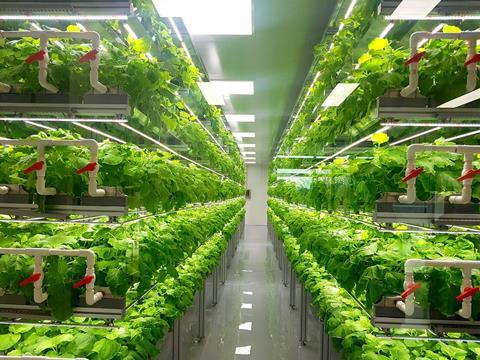
Growers involved in controlled-environment agriculture, which includes greenhouse production of fruit and vegetables as well as newer forms of so-called vertical farming, say they are concerned about misleading claims made when it comes to sustainability.
That message comes through loud and clear in a new report published by agriculture technology specialist WayBeyond and CEA consultant Agritecture, whose third annual Global CEA Census suggests the industry’s remarkable growth and an anticipated increase in profitability are accompanied by some apprehension.
Asked whether they believed the CEA industry was susceptible to excessive greenwashing, 70 per cent of respondents said yes.
“The fact that most growers believe misleading sustainability information is being shared is of concern and I’d say not entirely without merit although this is not just a CEA issue but agriculture as a whole,” comments Darryn Keiller, CEO and founder of WayBeyond. “Further research would be required to confirm the accuracy of their beliefs.”
The viability of future production and how to measure sustainability efforts were also prominent features of this year’s survey report, according to its authors.
“Last year’s Census reported on the impact of Covid-19 and the optimism felt toward the future of the industry,” Keiller continues. “This year focused on sustainability. It’s a topic that is growing in importance for governments, businesses and younger generations passionate about the impact of food production on the climate.”
According to S2G Ventures, global investment in CEA was USD$2bn in 2020. That support has reportedly led to major technological advances for new and existing farm operations.
“From the Census 72 per cent of respondents expect an improvement in net margin in the next year and 81 per cent plan to increase their production area in the next year. This is a positive for everyone involved in the sector,” says Keiller.
Do growers measure up?
Excitement about expected growth is one thing, but what also stands out from this year’s Global CEA Census feedback is arguably a lack of deeper understanding around how the sector uses natural resources and how sustainable it really is.
Henry Gordon-Smith, founder and CEO of Agritecture, explains that the lack of transparency is a risk for the whole industry.
“In my ten years in this sector, the evolution has been phenomenal, but the transparency and discussion around sustainability hasn’t advanced further than the usual commentary,” he says.
“As industry consultants, we’ve observed many instances of land and water savings, beneficial labour conditions, and increased product freshness – among other positive outcomes – when you compare CEA production with traditional field-grown produce.
“But we’ve also seen instances of individual operations relying on external case studies to make sweeping sustainability claims, rather than measuring their own data.”
The census showed there is still room for improvement when it comes to tracking and sharing these metrics, he continues. “What we need to see more of is accountability. If you’re doing great things – prove it. Tell your story with facts and data to back it up.
“Transparency is exactly what consumers want when it comes to the food they buy, and we want to be telling those positive, evidence-based stories that exist out there. Simply applying general industry claims to any one individual operation is likely what’s leading so many in the sector to feel that there is excessive greenwashing.”
This year, 60 per cent of respondents were founders and/or CEOs, making it one of the few global measurements of industry players in CEA.
“In many ways the findings this year on sustainability raise more questions than answers and should bring to light opportunities for new research initiatives,” Gordon-Smith concludes.
“Our two companies, Agritecture and WayBeyond, will continue to seek ways to get more progress from our amazing community of CEA growers around the world.”



